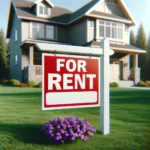

Tenants in condominium communities are often viewed as challenging, since they may not be familiar with condominium living. Because of this lack of experience, tenants may interfere with management, refuse to maintain the decorum required by the bylaws, or damage general common elements. This article addresses how to deal with the unruly tenant, outlines the various enforcement options offered to a condominium board, and concludes with a description of the ultimate step of eviction.
The Michigan Condominium Act contains various “ground rules” for co-owners to adhere to before entering into a lease for their Unit. This includes supplying the association with a copy of a lease form at least 10 days before presenting the lease form to a potential tenant and that “the co-owner… shall also provide the association of co-owners with a copy of the executed lease.” MCL 559.212. If there is no lease form used, the Condominium Act provides that specific details of the transaction must be provided to the association. With this information, the association’s board is better able to identify who is residing the in the unit and the rental amount, in case the association avails itself of its right to collect rent directly from the tenant when the co-owner is delinquent in assessment payments.
Additionally, and importantly, a community’s governing document provisions apply equally to co-owners as well as tenants. Therefore, when problems arise, there is likely a bylaw provision or board adopted rule which applies to the situation. In general, when dealing with persistent tenant issues, the association can utilize the following strategies:
- Warning Letters: The association may send warning letters to the co-owner and tenant, outlining the issues, providing a timeline for resolution, and explaining potential consequences if the problems persist.
- Fines: Most associations have a process for imposing fines for violations. These fines can serve as a deterrent to unruly behavior.
- Legal Action: If the situation escalates and the tenant’s behavior continues to disrupt the community, the association may pursue legal action, including eviction, as a last resort.
Most bylaws devote an entire article to broad restrictions on behavior and activities. There is often at least one section that deals with unreasonably annoying behavior and other nuisance activities. This section will certainly apply to a community suffering from unruly tenant activities. There may also be specific restrictions on the various violative activities the tenant is engaged, e.g., leaving trash cans outside, letting their dog bark incessantly, or parking on the common elements, that will be applicable to the given situation. Often, a warning letter to the co-owner and tenant, addressing the issues and pointing to the specific governing documents being violated, is all that is needed to correct the problem.
When the warning letter fails to elicit compliance, an association can typically assess fines against the violating co-owner after notice and hearing. This right is either spelled out in the bylaws and, if not, a condominium association can adopt fines via rule. If fines do not bring about the desired action, condominium bylaws typically permit the association to bring a circuit court action to obtain an injunction against the co-owner prohibiting them from violating the condominium documents.
The condominium bylaws may also specify (and the Michigan Condominium Act provides) that the association is entitled to demand the co-owner bring an eviction action to remove the disruptive tenant, and if the co-owner fails to do so, the association is empowered to bring its own eviction case against the unruly tenant. Specifically, MCL 559.212 provides that if a tenant or non-co-owner occupant fails to observe their obligations under the governing documents, the association may give the co-owner 15 days after written notice sent via certified mail to examine and correct the breach. If the breach is not cured within the 15 days or if the association believes that the breach will be repeated despite being cured, the association may move forward with eviction. Thus, in situations where the association has suffered continuous tenant issues, despite the possibility of curing the violation, the association may seek eviction based on the totality of the issues. However, given the complexity of condominium association evictions, consulting with an attorney experienced in condominium law is advisable to ensure the process is carried out correctly and in compliance with all relevant laws and regulations.
It is not uncommon to encounter unruly tenants who disrupt the peaceful coexistence of these close-knit communities. However, while many condominium associations feel powerless to stop co-owners from renting without notifying the association, or enforcing the condominium documents against renters, the Michigan Condominium Act provides condominium associations with effective remedies to deal with difficult tenants.
This article was originally published in Community Association News. Reprinted with permission from the Community Associations Institute – Michigan Chapter.


We were just talking about this yesterday. I’ll pass it along to the Board. Thank You!